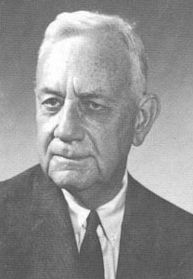A Quote by Gordon S. Wood
Again and again [Tomas] Jefferson deftly sidesteps many of [John] Adams's often provocative remarks. They both felt the correspondence, which was written for posterity, was too important to risk by being too candid with one another.
Related Quotes
[John] Adams's perception of Europe, and especially France, was clearly different than [Tomas] Jefferson's. For Jefferson, the luxury and sophistication of Europe only made American simplicity and virtue appear dearer. For Adams, by contrast, Europe represented what America was fast becoming - a society consumed by luxury and vice and fundamentally riven by a struggle between rich and poor, gentlemen and commoners.
I wonder if ever again Americans can have that experience of returning to a home place so intimately known, profoundly felt, deeply loved, and absolutely submitted to? It is not quite true that you can't go home again. I have done it, coming back here. But it gets less likely. We have had too many divorces, we have consumed too much transportation, we have lived too shallowly in too many places.
[John Adams and Tomas Jefferson] shared experience in 1775 - 1776 in bringing about the separation from Britain and their service in Europe cemented a friendship that in the end withstood the most serious political and religious differences that one could imagine, especially their differences over the French Revolution. It was probably Jefferson's obsession with politeness and civility that kept the relationship from becoming irreparably broken.
According to Adams, Jefferson proposed that he, Adams, do the writing [pf the Declaration of Independence], but that he declined, telling Jefferson he must do it. Why?" Jefferson asked, as Adams would recount. Reasons enough," Adams said. What can be your reasons?" Reason first: you are a Virginian and a Virginian ought to appear at the head of this business. Reason second: I am obnoxious, suspected and unpopular. You are very much otherwise. Reason third: You can write ten times better than I can.

























